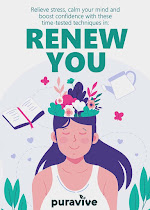Sleep is the golden thread that connects our health and our bodies. Thomas Dekker is a novelist who lives in the Netherlands.
At some point in our lives, everyone of us will experience insomnia. It could be brought on by stressful periods in our work, a personal crisis, apprehension about an upcoming event, or financial concerns that keep us awake and restless. Guilt or grief are another factor to consider.
Whatever it is that keeps you tossing and turning at night, you know how difficult it is to get out of bed in the morning. You've run out of energy. Your body hurts, and your mind is hazy. You're irritated and grumpy right now. Your sleepless night will have a negative impact on the rest of your day.
 |
| Biohack Your Sleep problems |
Sleep problems can become highly debilitating over time. Sleep deprivation that persists will have a detrimental impact on your profession, social life, and personal relationships. They may make you question your own sanity at times.
Insomnia can be a long-term problem for some people. Others report that it comes and goes. While insomnia is often linked to the quality or duration of one's sleep, it is not always the case. Sleep deprivation can have serious consequences for our mental and physical health.
It can lead to major problems like depression, high blood pressure, and a hormonal system that is out of control. This increases our body's susceptibility of chronic ailments and accelerates the aging process.
You're probably reading this article because you're having trouble sleeping and want to do something about it. You may have tried a variety of treatments (the warm glass of milk before bed or counting sheep). You may have resorted to prescription medication, putting you at danger of becoming addicted.
Despite this, nothing appears to be working. Are you bound to suffer from sleep issues for the rest of your life? Certainly not.
Biohacking is the only way to permanently overcome sleep deficiency concerns. It's completely risk-free, simple, and inexpensive, and it's guaranteed to help you conquer persistent sleep problems.
The biohacking techniques you're about to learn will make it simple for you to adjust and regulate your sleep habits.
They will assist you in creating a plan that will result in tangible changes to improve your sleep and general health and well-being.
If you include these biohacking strategies into your daily routine, the changes will become permanent, and you will always be able to get a good night's sleep.
Biohacking in a Nutshell.
Do you consume a lot of fatty fish to keep your brain in good shape? Do you use essential oils to help you relax and feel better? Perhaps you eat an antioxidant-rich diet or exercise often to improve your cardiovascular health. If that's the case, consider yourself a biohacker! In fact, without even realizing it, most of us are biohackers in some way.
What is Biohacking, exactly?
Biohacking is the process of altering your lifestyle patterns in order to "hack" your body's biological functioning and improve your health.
- Biohacking can simply be defined as "do-it-yourself" biology. To promote health, protect against disease, and overcome challenges like sleep deprivation, simple changes (such as food, exercise, and sleep patterns) are implemented.
- It is a relatively recent discipline that, while based in biology, is not considered a science in and of itself. Its potential, on the other hand, could be enormous. The field is still being studied, and the results are highly promising. Biohacking has already been proved to have a significant influence on a variety of physical and mental health issues.
- Because not all bodily cycles and rhythms are the same, biohacking is an exploratory procedure. Certain "hacks" may elicit a response from some people, while others will not. As a result, it's a process of experimenting with various hacks to see which one works best for you. This does not imply that you should experiment with your body in any way that could be harmful. It's completely safe to experiment with the tools to determine which ones, if any, help you sleep better.
- Dave Asprey and Ben Greenfield are the foremost specialists in the subject of biohacking. They experiment on themselves, develop new goods and fitness tips, and share them with the rest of the world.
Biohacking is divided into three categories:
1. Nutrigenomics has to do with nutrition, stress management, and tampering with your surroundings, such as sound and light.
2. Do-it-yourself biology (DIY). Non-professional scientists undertake biohacking experiments here and discuss the results with like-minded individuals. The idea is to show that even the most inexperienced person can become a successful biohacker.
3. Grinder biohacking focuses on using technology to hack the body's biology, such as implants and pharmacological supplements. This is strongly discouraged because the hazards may outweigh the benefits. This is something that should be left to total zealots.
What should you be concentrating on?
According to sleep experts, it is not the quantity of hours that matters. The quality of your sleep is critical to your physical and mental well-being.
Many people sleep for 7–8 hours a night but still feel fatigued and unrested when they get up.
This is due to the poor quality of their sleep. They can't get into a deep enough slumber to relax and restore their bodies. Regardless of how many hours you slept, quality sleep means waking up rejuvenated and full of life. This should be your major priority; not just falling asleep, but sleeping soundly. To increase our overall sleep quality, we can apply a variety of safe and natural biohacking strategies.
The chapters that follow will go through some of the most popular and effective sleep hacks. These tips will assist you:
- Overcome your sleeplessness.
- Become more drowsy.
- Increase the amount of time you spend sleeping.
- Boost the quality of your sleep.
- Encourage peaceful, deep sleep.
Some "experts" argue that biohacking necessitates a plethora of devices and complicated measures to track brain waves and other responses. This is entirely unneeded, to be honest.
Always keep in mind that no one knows your body like you do. How you feel will tell you what works best for you.
You'll be able to gauge the success by how much better your sleep is.
You might discover that you like biohacking so much that you want to learn more. You might want to experiment with gadgets and measurement tools as your knowledge and competence grow. But for the time being, let's keep things simple.
Get Rid of Blue Light.
The generation of melatonin, a hormone that regulates sleeping and waking, is disrupted by light from the blue side of the spectrum, according to science. Blue light sources, especially in the evening, can cause significant sleep disruption.
Light coming in via the window, as well as light from normal and LED bulbs, can all emit blue light. Digital screens, such as PCs, laptops, tablets, and televisions, generate a lot of blue light. This is a straightforward hack. The quickest and most effective technique to promote sleep is to keep all light out of your bedroom.
You can accomplish this in a variety of ways, including:
- Use blackout curtains to totally block out any light that may be coming in. This is especially good for persons who sleep late at night or work night shifts and sleep during the day.
- If you can't sleep in complete darkness, a low-intensity amber night light can suffice. Blue light is not emitted by these bulbs. Installing dim amber lights in the corridor is also a wonderful idea for those excursions to the bathroom. When you get back into bed, this will help you fall asleep quickly.
- Purchase a blue-light-filtering sleep mask. However, keep in mind that your entire body absorbs blue light through your skin. If this trick does not work for you, you should try blackout curtains.
- Make sure your home illumination is conducive to sleep. Our bodies begin manufacturing melatonin a few hours before we go to bed, which causes us to feel drowsy. However, excessively bright illumination in the home, as well as television and computer screens, might impede melatonin generation. Keep your house lighting modest (amber or red and yellow spectrum illumination is optimal) and avoid watching TV or sitting in front of the computer right before night. This is due to the fact that when your skin absorbs blue light, it produces cortisol, a hormone that promotes alertness and reduces the action of the sleep-inducing melatonin.
- During the last 3-4 hours of daylight, wear amber-colored spectacles. Another simple hack that promotes "dim light melatonin synthesis." This technical word refers to the generation of melatonin in the evening. Amber-tinted glasses have yellow or orange lenses and are incredibly cheap – but they could be just what you need for better sleep. They are available in a number of fashions on Amazon as well as elsewhere online.
- Recognize and eliminate the blue light sources that surround you in the evening. This hack should provide you with quick results, allowing you to enhance your sleep in a few of days.
Purchase a Sleep App.
Sleep apps are scientifically developed to help you sleep well. They are simple to use and have a variety of options to choose from and play with, which is what we are advised to do when biohacking.
They are designed precisely to slow your brainwaves and offer a peaceful sensation that will assist you in drifting off to sleep. Ideally, it will aid in the maintenance of peaceful sleep throughout the night.
Sleep applications often provide you with a selection of audio recordings of soothing noises that are designed to quiet the brain and induce sleep. Soft rain, ocean waves, wind rustling through trees, and other natural noises are examples. Guided meditation, white noise, and various ambient noises are all available in certain apps.
Some applications also include a diverse selection of relaxing classical and current music, so there's something for everyone's likes and preferences.
It's fun to play with different sounds to see which ones best hack your sleep. Among the other features are:
- Dashboards that show sleep patterns as well as the proportion of quality sleep. Snoring may even be measured by some apps.
- Apps like Recolor allow you to make brain-relaxing artwork if you are artistically inclined. You are given a color palette that is intended to reduce anxiety and encourage sleep.
- A variety of apps include hypnosis tracks to help calm and relax the mind.
- Hypnosis recordings are available in a range of apps to assist quiet and relax the mind.
Sleep Cycle, Pillow, Digipill, Recolor, and Sleep Time are some of the most popular apps on the market. The majority of sleep apps are free for both Android and iPhone users. Those with more advanced features range in price from $3 to $9.99.
Helpful hint: Numerous studies show that white noise, in general, is a wonderful sleep inducer. It stabilizes your brainwaves, allowing you to sleep soundly all night. If you don't want to utilize a sleep app, you can create white noise with a fan. Either a ceiling fan or a standard fan will suffice. Simply leave it on during the night.
The sound will lull you to sleep, and the constant spinning will let you sleep deeply all night.
First, try out a few of the free apps. If you enjoy using it and achieve good results, that's fantastic! If not, you haven't squandered any money.
Look for the Sun.
This is an example of how blue light from the sun can help us sleep better! As described in Chapter 1, avoiding blue light in the evening is essential. However, blue light exposure during the day is a different story, so don't be deceived.
Sunlight helps our bodies keep their circadian rhythms by transmitting messages to our pituitary gland and hypothalamus. The term "circadian rhythm" refers to our body's internal clock. It is critical to keep it balanced and stable in order to get a good night's sleep.
A number of essential hormones, including melatonin, are likewise regulated by our circadian cycle. Melatonin, as previously said, is essential for sleep. It also helps with depression, which can have an impact on sleep quality.
It works like this: during the day, exposure to sunlight increases 'dim light melatonin production,' which begins after nightfall. Spending time in the sun prepares your body for restful sleep by increasing the production of din-light melatonin.
This is one of the most basic sleep hacks available - and it's entirely free! It's as simple as taking a walk in the park during your lunch break or enjoying a smoothie at an outside café. No matter how hectic your day is, there are plenty of opportunities to indulge in some sin.
How long should you spend in the sun? At the very least, 15 - 20 minutes every day.
Of course, this is affected by a variety of circumstances, including the temperature in which you reside, the season, the time of day, how sensitive your skin is, and how much of your skin is exposed.
According to research, sitting near a well-lit window is another another opportunity to expose your skin to blue light during the day. This hack is ideal for rainy days or when it's too cold to go outside.
Make use of a Light Therapy Box.
If you find it difficult to get out in the sun on a daily basis, a light treatment box is an excellent option. This is a device that emits light with a blue wavelength. It's intended to balance your circadian cycle in the same manner that sunlight does.
Place the box a few feet away from you, but not immediately in front of you. It is recommended that you place it in your peripheral view. Allow yourself 15-30 minutes of light exposure.
During your session, expose as much skin as feasible. To preserve your circadian rhythm, you should do this at the same time every day.
So there you have it. Another incredibly simple and easy sleep hack!
Foods That Help You Sleep.
We all appreciate food, and this food hack includes items that everyone will enjoy. This hack allows you to be creative and cook recipes that are not only delicious but also help you sleep better!
The following is a list of sleep-friendly meals that have been scientifically shown to help you sleep better. Include them in your diet, especially around dinnertime, and you'll be surprised at how much better your sleep will be.
- Kiwi
- Fatty fish (salmon, tuna, halibut, mackerel)
- Cherries
- Poultry
- Avocadoes
- Leafy greens, especially spinach
- Nuts, especially pistachios, almonds, and walnuts
- Cheese
- Chamomile tea
- Starchy foods (potatoes, yams, plantains)
- Peanut butter
- Bananas
- Oatmeal and cereal
Tryptophan, an amino acid that creates serotonin, is found in several foods (a hormone the relieves stress, promotes calmness, and uplifts the mood). Melatonin, which is essential for sleep, is also found in them. Regularly eating these items increases "sleep hygiene," as defined by scientists. Sleep hygiene refers to the eating habits we acquire, particularly before bedtime, in order to promote sleep.
Best of all, the foods listed above are not only popular with most people, but they can also be used in salads, desserts, casseroles, or simply consumed on their own. Make it a habit to consume one or two of them at each meal, but especially at dinner. Before sleep, a handful of nuts, a small dish of oatmeal, or a banana are all good options.
I believe you would agree that practicing food hygiene is a simple and pleasurable hack. So, think outside the box! Experiment with different sleep-friendly foods to see which ones work best for your body.
Don't damage your sleep by eating the things listed below:
- Caffeine-rich beverages include coffee, soda, and energy drinks (even non-cola soda contains caffeine)
- Chocolate.
- Spicy foods and chili.
- Peppermint.
- Alcohol (alcohol may make you feel sleepy for a short time, but it is a major sleep disruptor.) Alcoholic beverages make it difficult for your brain to enter the deep sleep cycle that is required for good sleep.)
- High-fat foods.
- Salty foods.
- Watermelon and cantaloupe, for example, are high in water content foods. You don't want numerous trips to the bathroom to disturb your sleep!
This isn't to mean you should exclude these things from your diet forever. Personally, I couldn't operate without a cup of coffee in the morning. Just keep them during the day to prepare your body for a restful night's sleep. If you absolutely must have that hamburger or bag of chips, do so at lunchtime. From noon onwards, make it a rule to avoid sleep-disrupting foods.
Hacking the Acupressure Mat.
This is a normal mat with foam padding and sacking covering. Plastic disks with projecting spikes are embedded in it. These mats are thought to be a modification of the nail bed used by yogis during meditation — ouch! But don't worry; an acupressure mat isn't quite as difficult! It's similar to a massage chair or an acupressure machine, but much less expensive.
The prices range from $20 to $40 and are available for purchase online. Acupressure mats are surprisingly long-lasting and easy to clean.
What is an acupressure mat and how does it work?
- A typical mat has around 800 "massage points," or spikes, that massage your body profoundly. They soothe tense muscles, reduce aches and pains, and help you sleep better.
- Millions of people have reported an immediate improvement in sleep quality, particularly when using them in the nights.
- Back, neck, and joint discomfort can all be relieved with the use of an acupressure mat. You are getting a twofold benefit if you suffer from these illnesses in addition to sleep deprivation.
- It boosts metabolism and digestion, making it a "holistic hack" for overall health and happiness.
- It enhances blood circulation, which helps you sleep better.
The proper way to utilize an acupressure mat.
The mat is quite adaptable, since it may be used on chairs, benches, your bed, or the floor. It's small enough to take to the beach or park. All you have to do is lie on it for at least 20 to 30 minutes per day, or as long as you wish. If you have the time, you can use it twice a day, once in the morning and once in the evening.
It is completely safe and has no negative side effects.
- Schedule a soothing session on a daily basis, exactly as you would with a massage professional.
- The first 3–5 minutes will be unpleasant, but as you relax, you will become comfortable and love the sensation. Users have characterized it as "absolute joy."
- It's recommended to use it on the floor for a more intense massage. Some people love it, while others find it too uncomfortable. Experiment with various surfaces to determine which one works best for you.
- The higher the amount of skin exposed against the mat, the greater the benefit. If you are certain of privacy, you may wish to wear a bathing suit or perhaps go entirely naked.
- If you enjoy yoga or meditation, you can do it on the mat for additional stress relief and relaxation.
Restrictions.
There are no restrictions on gender or age in general. Only three exceptions exist:
- If you're expecting a child.
- If you have a rash on your skin.
- If you have skin cuts, wounds, or burns.
Music Therapy and Binaural Beats.
Binaural beats are auditory tones that cause brainwaves to change. The frequency of the beats alters the brainwaves in order to obtain precise results. Binaural beats are utilized to boost creativity, focus, and sleep.
What are binaural beats and how do they work?
- Because the sound frequencies presented to each ear are different, stereo headphones are necessary. Although there are special binaural beat headphones on the market, any good quality headphones will suffice.
- To be effective, each tone's frequency must be less than 30 Hz. As a result, the two separate beats might be heard as a single tone.
- The brain combines the two beats into a single sound frequency. The Frequency Following Response is what it's called. It then adjusts its waves in response to the tone.
-
- Binaural beats use complex algorithms to trick your brain into listening to a specific frequency. When we perform activities, our brains use different frequencies. It uses Delta and Theta waves for sleep, for example. They have to do with calm, relaxation, and profound slumber. Your brain generates these brainwaves as a result of the binaural rhythm you're listening to.
- You are completely erroneous if you believe binaural beats are some strange, alien music. They're incredibly relaxing, ethereal, and lovely. As you softly drop off to sleep, you will have calm, blissful thoughts.
If you like it, you may buy an audio track package or a subscription for a very low price. Just keep in mind that to get the most out of this hack, you'll need a nice pair of headphones.
Music therapy.
There is another option if nature sounds or binaural beats aren't your thing. If you enjoy music, music therapy is a great way to improve your health. The use of relaxing music, known as music therapy, has been scientifically demonstrated to aid in relaxation and sleep.
How does it work?
We begin to relax and drift off to sleep when soothing waves of music link with our brainwaves. The brain will eventually identify this style of music with relaxation and sleep. It will quickly learn to relax, and you will have no trouble falling asleep.
What does "soothing" music imply?
Music that is loud and rapid, such as strong rock or rap, will wake you up and keep you awake. On the other hand, soothing music is the polar opposite.
It's more laid-back, with gentle beats and rhythms. According to studies, the best music for sleeping is:
- Sonatas and piano pieces are examples of classical music. Beethoven's Moonlight Sonata is a popular choice.
- Soft rock is a genre of music that is characterized by If you like heavy rock, save it for the daylight. Rather, listen to your favorite soft rock music before going to bed. These should be songs where the melody and words take precedence over the beat.
- Ambient music is a type of music that is played in a Instrumentals with slow to medium tempos are included. Instrumental versions of your favorite songs are also available. Hotel California is one of the most well-known.
- Hymns. For those who are more religious or spiritually inclined, this is an excellent pick. It's also a good idea to try out some of these alternative audio therapies. Some genres, albeit not necessarily your favorites, may work better for you.
What are the chances? You may not be religious, yet you'll find that hymns help you relax.
Aromatherapy.
Aromatherapy is viewed with mistrust by many people. They dismiss it as a fad or a practice practiced by meditation and spiritual zealots.
However, research has revealed that the aroma of essential oils has a variety of effects on our brain. They have the ability to reduce anxiety, improve mood, and encourage optimism. They are, above all, effective insomnia relievers.
How to use essential oils?
Making use of a diffuser Inhaling essential oils is the best way to use them. Because our noses' olfactory nerves are directly connected to the brain, this is the case. The essential oil's aroma immediately reaches the brain, stimulating sleep-inducing chemicals. You also get the extra benefit of wonderful fragrances filling your room and home.
A diffuser is affordable and can be found practically anywhere that sells essential oils. Another option is to use a cotton ball drenched in essential oil and placed near your bedside.
When diffused, essential oils are completely harmless. Inhaling the aroma will cause no harm to children or pets. In fact, your children, cars, and dogs will all sleep better!
In the bath, use essential oils. A warm bath with a few drops of essential oil creates a wonderful and soothing experience. Warm water and the aroma of the oil will combine to put you in the ideal sleeping state.
Warm baths should be taken an hour before night, not straight before.
Warm water increases circulation for a short time, keeping you awake.
Apply a few drops of essential oil to your bed linens. Spray your bedsheets and pillowcases lightly using a spray bottle. This will create a scented sleep oasis that will endure throughout the night.
The following is a list of essential oils that have been recommended for sleep issues:
- Essential oil of chamomile. This is a natural sedative that makes you want to sleep.
- Essential oil of marjoram. It's a natural antidepressant and anxiety reducer that can help you sleep better.
- Essential oil of clary sage. This is also a natural sedative that is incredibly relaxing.
- Essential oil of Frankincense Because of its numerous therapeutic characteristics, this oil is referred to as a miracle oil. It works as a sleep aid by lowering your body temperature to the ideal range for restful sleep. It also clears the nasal passages, making it possible to breathe deeply while sleeping.
- Essential oil of ylang ylang. Reduces blood pressure and promotes emotions of calmness and tranquillity.
- Essential oil of lavender. This oil has been used for generations to promote relaxation and tranquillity. Lavender is a wonderful sleep aid in addition to its lovely aroma. It encourages rapid eye movement (REM) sleep. This is a deep sleep state in which the heart rate slows and the muscles entirely relax. This is the highest possible level of sleep.
- Essential oils of orange and rose. These two oils form a strong, delightfully aromatic sedative when combined.
- Essential oil of valerian. This oil's aroma will help you sleep well all night. It also helps to calm the body and provides a sense of well-being.
- Bergamot essential oil is a citrus fruit with a citrus scent. Reduces heart rate and blood pressure, allowing for greater sleep. It also has the additional effect of reducing anxiety.
Oils that boost energy and alertness are on the other end of the range. Rosemary, peppermint, grapefruit, lemon, and cypress are just a few of them. Avoid using products containing these substances in the evening because they may keep you awake. They will give you a large energy surge instead of relaxing you. They are, nevertheless, excellent morning hacks, especially on stressful days when you begin to feel fatigued.
Helpful Sleep Tips.
The following are some more biohacking suggestions that make sense. In fact, you might already be utilizing them. These extra tiny tweaks, in addition to the more precise hacks covered here, will provide you with additional benefits.
Exercise on a regular basis. Regular exercise enhances general health, and a healthy body contributes significantly to good sleep. It is not necessary to participate in an aerobics class or a gym session to get some exercise. Cycling, swimming, and taking nature hikes are all good for you. Simply ensure that you exercise your body on a regular basis.
It's important to remember that exercising before night will revitalize you. Relax before going to bed. Before heading to bed, spend an hour doing something soothing. Spend time in peaceful conversation with your companion, read a book, or meditate if you're like it.
Avoid activities that will keep you awake for several hours.
Do not watch horror films if you are easily startled or frightened. Do not start a financial argument with your husband. Avoid any situation that could put you in a stressful predicament.
Quiet environments promote restful sleep. If family members are awake, request that they make as little noise as possible. If at all possible, turn off your cellphone. Any noisy appliances, such as air conditioners or clanking boilers, should be repaired.
Take note of any additional noises that can interfere with your sleep. This is especially critical if you are a light sleeper.
Playing quiet music or nature sounds in your bedroom during the night can help you tune out noise.
Invest in high-quality essential oils. Essential oils aren't all created equal. Buy only the greatest quality for the best results.
These should be labeled as either 100 percent pure or 100% organic.
Purchase a high-quality mattress. You don't want to cut corners when it comes to your mattress. It is this "base" that will allow biohacking to reach its full potential.
Most mattresses are padded with potentially harmful compounds, which you may not be aware of. Flame retardants, in particular, are particularly damaging to one's health and sleep quality. It could take years for these pollutants to dissipate, and in the meantime, you're breathing them in!
A mattress that is 100 percent natural or organic is one of the best investments you can makeyou. Do your homework and take the time to search around and compare brands. It will be costly, but consider this: don't you place a higher value on your health?
Turn off the Wi-Fi. Wi-Fi signals might disrupt your sleep by interfering with your brain waves. Simply turn it off, and don't have any routers in your bedroom in general.
Make sure your bedroom is at a comfortable temperature for sleeping.
The ideal sleeping temperature is 60-67 degrees Fahrenheit. Because your body temperature drops when you sleep, keeping your room chilly will help this process. Keep your room at this temperature as much as possible. If you are cold, wear socks and have a hot water bottle ready.
Take sleep-promoting vitamins. Natural supplements vary from sleeping pills in that they are completely natural and have no negative side effects. If your body is deficient in specific sleep-promoting vitamins and minerals, these may be useful hacks. Vitamin B-5, B-12, vitamin D and magnesium, iron, calcium, and vitamin E all help to keep the circadian rhythm in check. You can get over-the-counter supplements to help you sleep better.
Putting Everything Together.
So, what can we conclude from all of this?
- We've seen how biohacking can help us sleep better.
- We've shown that tampering with sleep doesn't necessitate advanced scientific knowledge or expensive devices.
- Biohacking is a collection of minor lifestyle modifications that improve the way your body works.
- Biohacking is a painless process that costs next to nothing. It is a completely natural method of promoting sleep.
So, how do you get started with the bio hacks we've discussed? Which ones should you begin with? Is it possible to combine them all? How can you create the ideal biohacking strategy?
It's natural to feel overwhelmed if you're new to biohacking. The important thing is to start small. Consider biohacking to be a toolset. The strategies described here are the various tools in that toolkit. To begin, you must personalize these tools to match your specific requirements. Then you must alter them to achieve the best outcomes.
Let's imagine you want to begin by listening to binaural beats. Download a few songs and listen to them for a couple of nights.
Any variations in your sleep should be noted and rated on a scale of 1 to 1o. 1 would be a significant improvement, whereas 0 would be a non-improvement.
Next, listen to music or nature noises to determine if certain songs help you sleep better. Make a list of your findings and give them a grade.
Experiment with various audio tracks until you find the auditory techniques that work best for you. Then go to a different tool and repeat the process.
If you decide to use an acupressure mat, experiment with it on various surfaces to discover how it works. If it becomes too uncomfortable, abandon it and go on to the next hack, and so on.
Remember that there is no such thing as the finest or worst sleep hack.
What works best for you is the golden rule.
Suggestions:
- Begin with one or two hacks that appeal to you the most. Give yourself a week or two to test things out and see what happens.
- Incorporate the tricks that help you sleep better into your day-to-day routine. They should be practiced on a regular basis until they become second nature.
- Repeat the process with a different hack.
- Starting with the sleep-friendly dietary hack is a good place to start. It is the simplest and only necessitates the consumption of the items listed here.
- It is said that practice makes perfect. Don't give up too soon if you find immediate or modest improvements in your sleepover days or weeks.
- Biohacking tools, on the other hand, may not necessarily produce rapid results. Your brain will require some time to adjust to the new triggers you've taught it. Patience and practice are essential in this situation. Allow two weeks for each hack to get up and running before moving on to the next.
Keep in mind that biohacking is an iterative process. It's a process of trial and error to figure out what works best for your sleep patterns.
Conclusion.
Sleep deprivation is a serious issue that can put your life on hold. It can make it difficult for you to perform at your best. It can have a negative impact on both your emotional and physical health. It has the potential to harm relationships. More importantly, it deprives you of the pleasures of life.
Biohacking has been shown to increase sleep quality in studies. By incorporating these techniques into your daily routine, you have nothing to lose and everything to gain.
Finally, biohacking is entertaining! Once you've mastered it, you'll want to apply it to other aspects of your life, such as academic and athletic success, weight loss, and improved interpersonal relationships. The sky is truly the limit when it comes to biohacking.
________________________________________________
Ancient Japanese Discovery Melts 54 LBS Of Fat
The Custom Keto Diet | Your Personal Keto Custom Plan
Nature's Secret for Healthy Blood Sugar. Weight Loss
The Delicious Smoothie Diet: 21 Day Rapid Weight Loss Program


















0 Comments